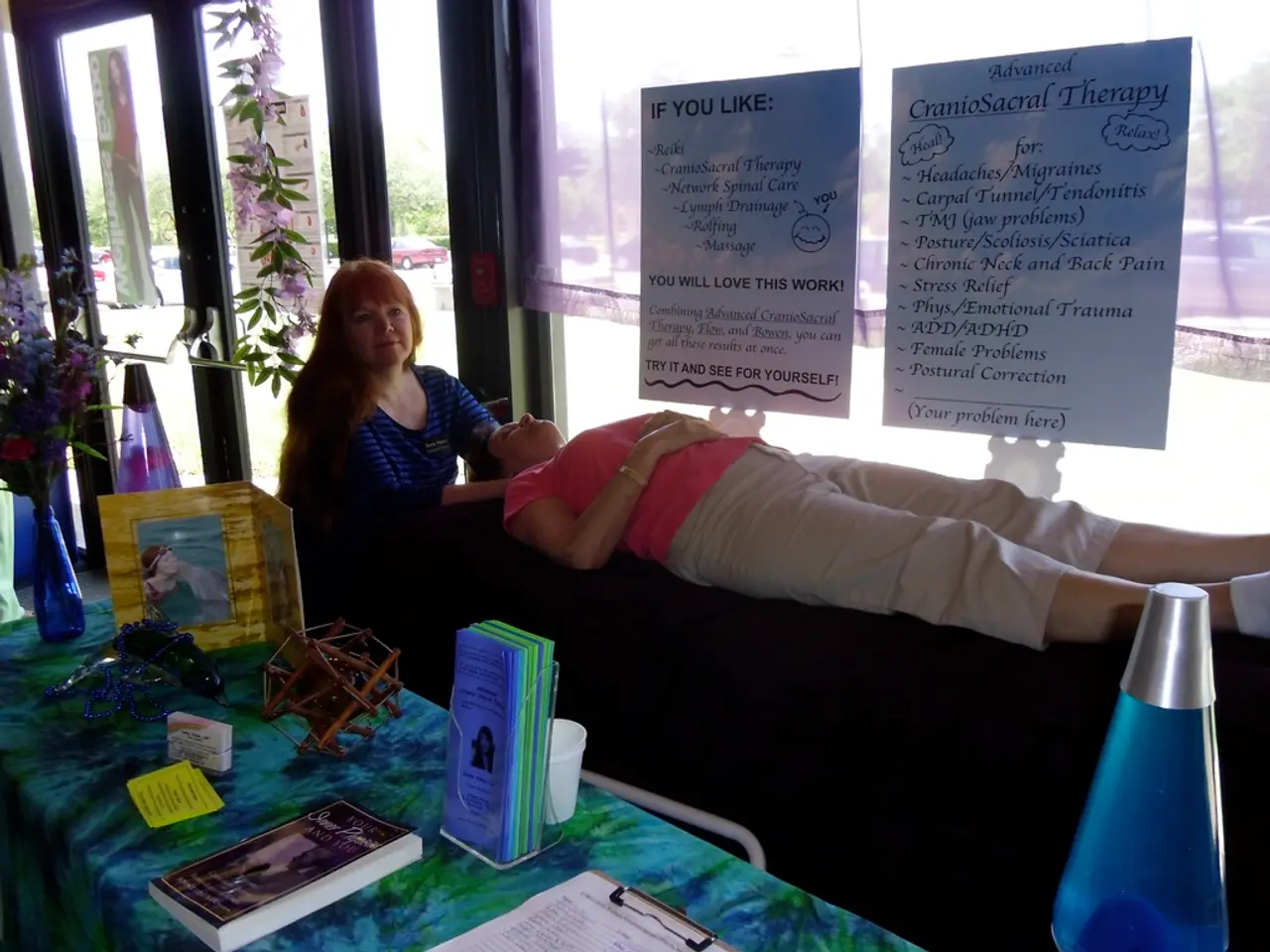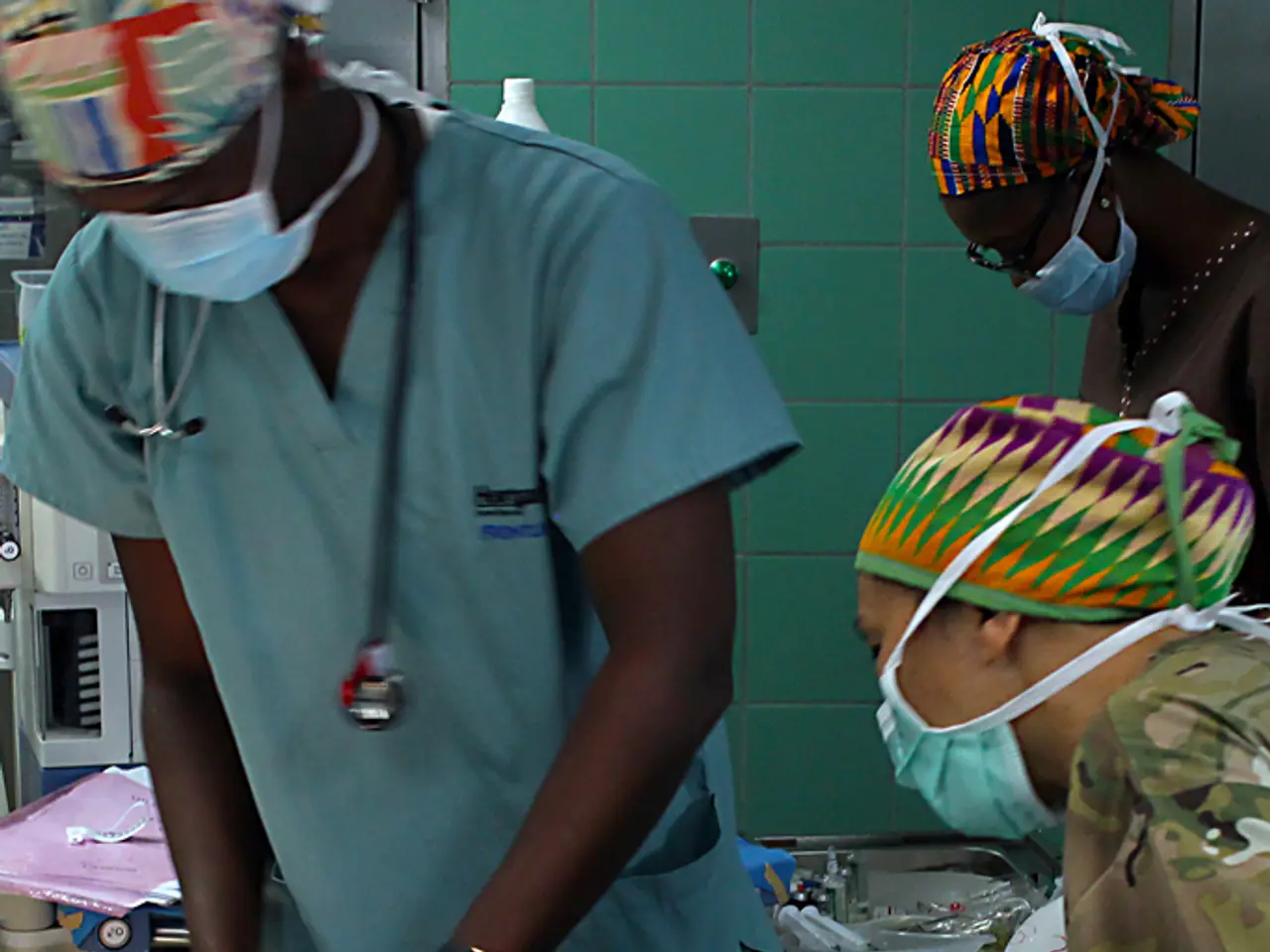Resistant Depression Therapies: Identifying Strategies, Understanding the Condition, Prognosis
Treatment-resistant depression (TRD) is a complex mental health condition that requires a multi-faceted approach beyond standard antidepressants. The condition, characterised by poor quality of life, functional impairment, self-harming behaviour, high relapse rate, and suicidal ideation, affects a significant number of individuals.
Medication and Augmentation Strategies
A common approach to managing TRD involves medication adjustments and augmentation strategies. This could involve changing antidepressant types, such as selective serotonin reuptake inhibitors (SSRIs) and serotonin-norepinephrine reuptake inhibitors (SNRIs), adjusting dosages, or adding medications like mood stabilizers or atypical antipsychotics to enhance effectiveness. Augmentation therapy, which involves adding a second medication to a first-line antidepressant, usually not an antidepressant itself, is also employed.
Neuromodulation Techniques
Non-pharmacological treatments for TRD include Electroconvulsive Therapy (ECT), Repetitive Transcranial Magnetic Stimulation (rTMS), Deep Transcranial Magnetic Stimulation (dTMS), Vagus Nerve Stimulation (VNS), and various brain stimulation techniques. ECT, the most established non-pharmacological treatment for TRD, especially when other methods fail, produces a higher rate of remission, with remission occurring in 75% of participants in one study.
rTMS, a non-invasive neuromodulation technique that stimulates brain areas involved in mood regulation, has robust evidence for efficacy and good tolerance. Deep TMS, which targets deeper brain regions, is less studied but shows promise. VNS, an implanted device that stimulates the vagus nerve to modulate brain circuits, also shows some evidence of benefit, though more research is needed.
Novel Treatments and Psychotherapy
Newer options for managing TRD include ketamine and esketamine, which provide rapid antidepressant effects and are often used when other treatments fail. Psilocybin, the psychedelic in hallucinogen mushrooms, is a novel treatment that may provide symptom relief for some people with Major Depressive Disorder (MDD).
Psychotherapy plays a crucial role in managing TRD. While standard therapies like cognitive-behavioral therapy (CBT) may be insufficient, alternative or intensive therapies (e.g., dialectical behavior therapy) are important adjuncts.
The Role of Anti-Inflammatory Drugs
Research is ongoing into the role of anti-inflammatory drugs, such as celecoxib (Celebrex) and infliximab (Remicade), in the treatment of TRD. The belief is that inflammation may play a role in the condition.
A Personalised Approach
Given the complexity of TRD, a comprehensive, individualised approach combining biological, psychological, and social interventions is necessary for optimal outcomes. This approach reflects the need for a tailored treatment plan for each individual.
The Future of TRD Treatment
Despite advancements, experts still have much to learn about helping people reach and maintain remission in TRD. More than one-third of people with TRD go into remission, but the remainder have residual symptoms. New medications, such as esketamine (Spravato), approved in 2019, offer hope for those with TRD. However, these treatments often come with significant side effects, such as high blood pressure and dissociative symptoms in the case of esketamine.
In conclusion, managing TRD requires a multifaceted approach, incorporating medication optimization, neuromodulation techniques, novel treatments, and various psychotherapies. The future of TRD treatment lies in continued research and the development of personalised treatment plans for each individual.
- In the management of Treatment-resistant depression (TRD), psychotherapy plays a crucial role, especially when standard therapies like cognitive-behavioral therapy (CBT) may be insufficient, and alternative or intensive therapies, such as dialectical behavior therapy, are important adjuncts.
- Researches are exploring the role of anti-inflammatory drugs, like celecoxib (Celebrex) and infliximab (Remicade), in the treatment of TRD, believing that inflammation might be a contributory factor to the condition.
- Neuromodulation techniques, such as Electroconvulsive Therapy (ECT), Repetitive Transcranial Magnetic Stimulation (rTMS), Deep Transcranial Magnetic Stimulation (dTMS), Vagus Nerve Stimulation (VNS), and various brain stimulation techniques, can be employed as non-pharmacological treatments for TRD, offering promising results for improving functional impairment, self-harming behavior, and suicidal ideation.
- Ketamine and esketamine, which provide rapid antidepressant effects, are newer options for managing TRD when other treatments have failed, though they often come with significant side effects.
- A personalized approach, combining biological, psychological, and social interventions, is considered essential for optimal outcomes in treating TRD, reflecting the need for tailored treatment plans for each individual, considering factors like nutrition and health-and-wellness practices.




